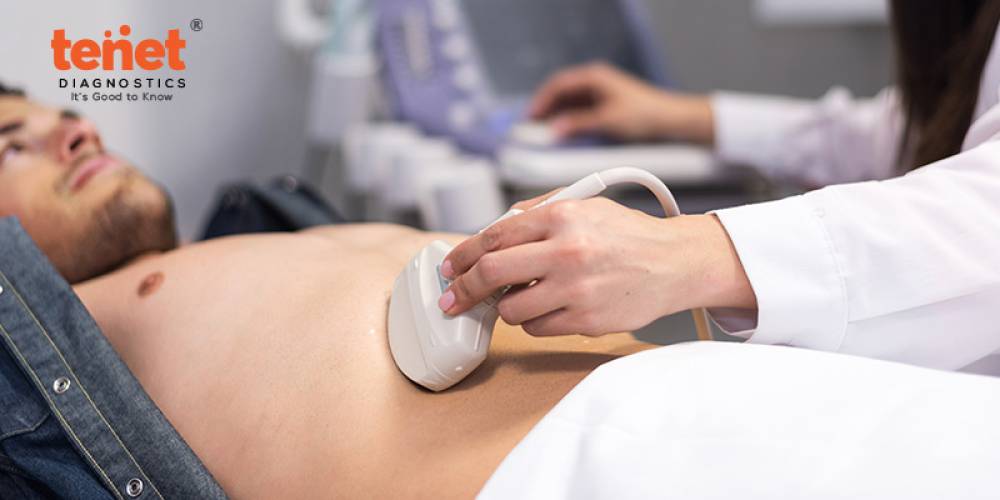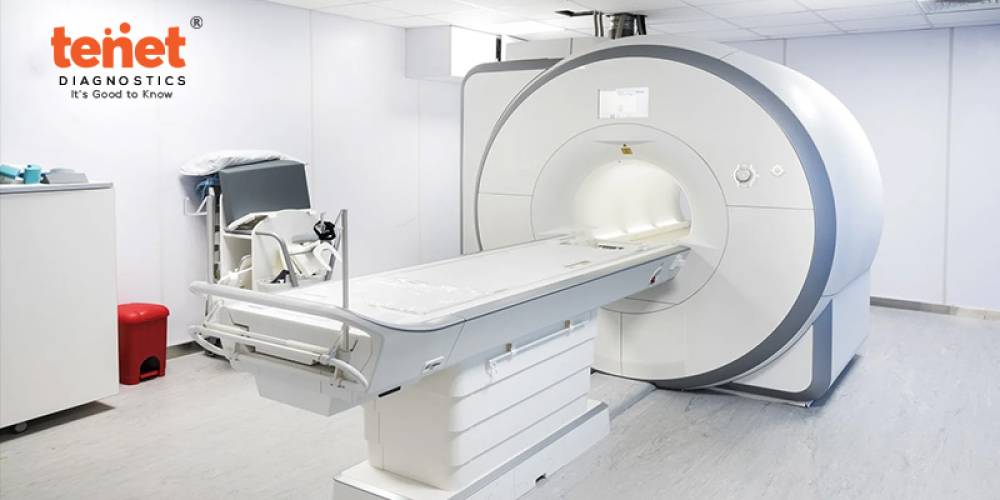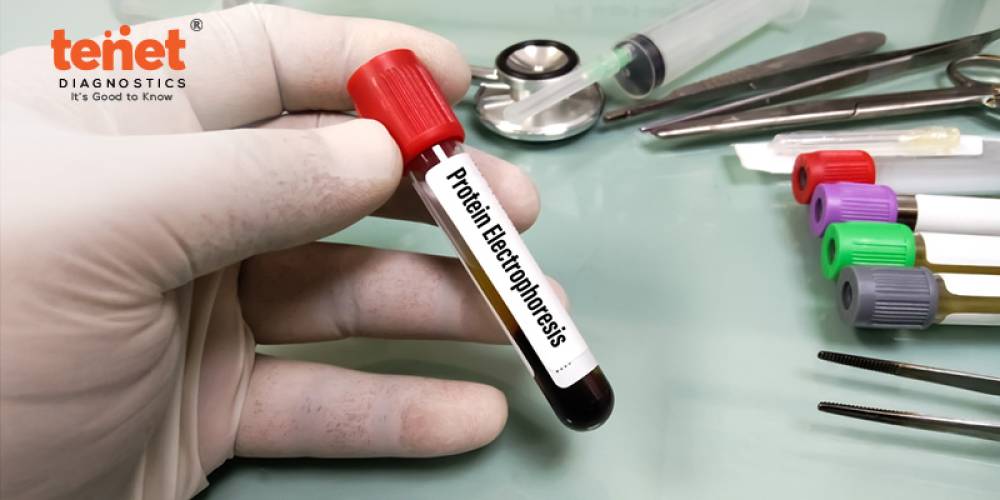Urine culture tests are among the most scheduled tests. The Complete Urine Examination consists of tests designed to assess the physical, chemical, and microscopical properties of urine. It aids in evaluating overall health and serves as an early warning sign of diseases such as renal disease, diabetes, urinary tract infections, and liver disease. It, also known as urinalysis, is performed before surgery, as part of drug analysis, and as part of a prenatal checkup.
A urine test involves a doctor inspecting the urine and analyzing its color, appearance, microscopic results, and chemical findings. A regular urine test is a simple, non-invasive technique that assists a physician in determining the general health of the person. Connect with the best diagnostic test center near me for a quick urine culture test for early warning signs of diseases because precaution is always better than cure.
What Is the Urine Culture Test?
.jpg)
A urine culture test looks for germs (microorganisms) that cause infections in the urine. Urine is the liquid waste in the body. Culture is the medical word for growing microorganisms in a laboratory setting, such as bacteria and yeast. Bacteria and yeast (fungi) begin to grow in the culture media if they are present. This growth signifies a urinary tract infection (UTI).
Purpose Of Urine Culture Test
Doctors order urine cultures to rule out urinary tract infections. A UTI occurs when germs enter your urethra; the tube which drains your urine. UTIs usually begins in the bladder (the organ that holds urine). However, they can spread to your kidneys or prostate (the organs that produce urine).
A urine culture test may also be performed:
For detecting the bacteria or yeast causing the infection, your doctor can choose the most effective treatment after the urine culture test report and establish whether the pathogen is antibiotic-resistant.
Who Requires a Urine Culture?
Your doctor may request a urine culture test if you have frequent or difficult-to-treat UTIs. However, in most cases, only patients who exhibit symptoms of a UTI require a urine culture.
The following are risk factors for frequent UTIs:
- Diabetes.
- Kidney illness, such as kidney stones
- Problems draining your bladder completely, mainly if you use a urinary catheter.
- Immune system weakness caused by autoimmune illnesses, organ transplants, or cancer treatments
A urine culture test may be advised for the following signs and symptoms:
- Frequent urination
- Painful urination
- Presence of blood in the urine
- Strong urge to urinate with less urine
- Dark, cloudy, discolored urine with a pungent smell
- Abdominal and lower back pain.
If you find any of the above signs, book an appointment for the test and get your urine culture report fast for a speedy recovery.
Procedure Of Urine Culture Test
.jpg)
Your doctor will inform you if you need to take additional precautions before delivering a urine sample.
A clean catch urine sample is required for a urine culture. This word refers to a urine sample that should lack as many contaminants as possible, such as typical microorganisms on your skin. You could give this sample to your lab testing
facility. However, you can also opt for urine sample collection at home. Below are the steps for the urine culture test procedure:
- First thing in the morning, collect a urine sample.
- Before providing a urine sample, you should not pee for at least an hour.
- To guarantee enough urine to test, drink at least 7-9 ounces of water 20 minutes before the sample collection.
- Clean your hands and genitalia before the clean-catch collection.
- Place a sterilized cup under the vulva or penis to collect the sample. Do not let this cup touch your skin.
- Collect the specified amount of urine suggested by your doctor in the cup (usually 1 to 2 ounces).
- Place a lid on that cup without contamination and put it in the designated collection area. Don’t forget to rewash your hands.
- It is recommended to give the sample for Urine culture before starting any antibiotics.
Inform your doctor if you are now taking or have recently taken any prescriptions or over-the-counter vitamins, medicines, or supplements. These could skew the lab's findings.
Speak with your doctor if you have any doubts or concerns regarding the test. Then, contact the best diagnostics near me to find the urine culture test price and sample collection from home.
Urine Culture Results
.jpg)
The urine culture test report time takes 2 days from the lab. After that, your doctor will contact you to review the results.
1. Positive result
If bacteria develop in your urine culture and you have symptoms of infection or bladder irritation, you have a UTI. This is a positive urine culture test result or an abnormal test result.
The bacteria in the cultured sample are tested for antibiotic sensitivity by the lab. This test, also known as an antibiotic susceptibility test, reveals the type of
bacteria that causes the infection and which antibiotics the bacteria are sensitive to, i.e., which drugs will kill the bacteria. This information assists your doctor in selecting the most efficient antibiotic medication for urine culture test positive treatment.
Certain antibiotics are only effective against specific bacteria. Furthermore, certain bacteria are resistant to antibiotics. This signifies that the antibiotic can no longer prevent the growth of that type of bacteria. Infections that are resistant to antibiotics are more difficult to treat.
2. Negative result
A negative urine culture test results indicate that no bacteria or yeast were found in the urine sample. Therefore, you do not have a urinary tract infection. The usual Urine test result range varies based on the lab doing the test.
If you continue experiencing any signs, such as painful urination (dysuria) or blood in your urine (hematuria), your doctor may request imaging scans or other tests.
Connect to the best diagnostic near you to find the details on urine culture test cost and track your health with this test.
Final Words
Urine cultures are used to look for microorganisms that cause UTIs. An antibiotic sensitivity test can identify the bacteria if you have a urinary tract infection.
This information assists your doctor in determining the appropriate treatment to treat your disease. In addition, a urine culture test may be suggested after your treatment to check that your infection has been removed.
A clean catch mid-stream urine sample is all that is required for most people's tests. A catheter may be used to collect your urine sample on rare occasions by a healthcare provider. If you are experiencing UTIs, talk to your doctor about the diagnostic lab for urine culture test near me and how you can reduce your chances of having them







